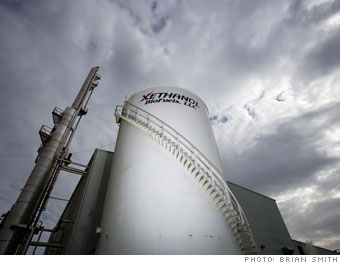FSB first began covering New York City-based Xethanol in 2006 when we caught wind of its efforts to produce ethanol from waste, ranging from wood chips to old pizza boxes ("Fill 'er up with caramel," February 2006). However, an article printed later that year by investor website Sharesleuth.com questioned Xethanol's claims about its technology and the background and conduct of its management team, giving FSB reason to take a closer look at our past "Next Little Thing" company. Sure enough, our writers found that the company had exaggerated its experimental ethanol capabilities and was facing multiple lawsuits from shareholders charging management with making false claims to artificially inflate the stock's price. (Xethanol declined to comment but called the suits meritless in an open letter to shareholders published late last year.)
It's been almost a year since our second look at Xethanol ("Broken promises?," February 2007), and the company is still losing money. Since January the publicly traded company has seen its stock price drop 83% to around 38 cents. Xethanol has generated about $10 million in revenues since January, primarily from the sale of four million gallons of corn-based ethanol produced in Blairstown, but the company's net loss was still $18 million during the first three quarters, due to impairment losses on fixed assets and increased legal and administrative costs.
Ian Horowitz, an alternative energy analyst with Soleil Securities Group, projects the company's revenues to drop slightly from $11 million in 2006 to $10.8 million by the end of 2007. Because of the decrease in ethanol pricing across the board, Horowitz expects the company's total losses for this year to reach $25.5 million, 26% higher than 2006. The company's expenses also remain a point of criticism. Horowitz pointed out that the biotech company has spent more on travel and entertainment ($822,000) than on R&D ($483,000) this year.
In May, Xethanol established a research lab at Virginia Tech that is headed by Foster A. Agblevor, an associate professor in the department of Biological Systems Engineering. Agblevor claims to be on track to produce ethanol out of cotton gin waste by the end of 2008, but only in small multi-liter batches. The thousands of gallons of fuel that the company talks about creating from waste materials seem a ways away. "In my opinion, this company will continue to produce positive press releases trying to keep its head above water while they work through a cash burn situation," says Horowitz. "I've had a sell rating on this stock for a significant amount of time."
| Sir Richard will help fund U.S. entrepreneurs, jetpacks will finally fly, and GPS devices will show the cheapest gas nearby - plus much more! (more) Watch out, Detroit. A new crop of electric-vehicle startups aims to put a dent in the Big Three by applying the latest in high-technology engineering and design. (more) Behind the scenes at the Boston launch of Virgin Money, Richard Branson's new peer-to-peer lending service. (more) |

